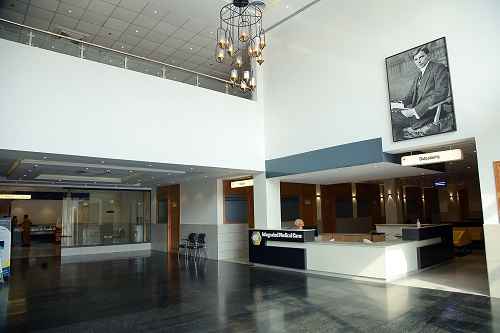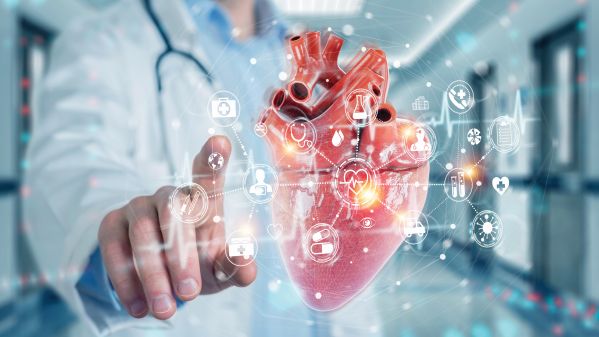- 25-Jul-23
A heart attack, also known as a myocardial infarction (MI), is a serious medical condition that occurs when there is a sudden blockage of blood flow to a part of the heart muscle. It typically happens due to the buildup of plaque (a fatty substance) in the coronary arteries, which supply oxygen-rich blood to the heart.
When a coronary artery becomes blocked, the heart muscle it supplies may be deprived of oxygen and nutrients, leading to damage or death of the affected heart tissue. This can result in various symptoms such as chest pain or discomfort, shortness of breath, pain in the arms, neck, jaw, or back, nausea, lightheadedness, and cold sweats. Immediate medical attention is crucial in the event of a heart attack to minimize the damage to the heart and improve the chances of recovery. Emergency medical treatment may involve administering clot-busting medications, performing angioplasty, or inserting stents to restore blood flow in the blocked artery. Rehabilitation and lifestyle changes are often recommended after a heart attack to reduce the risk of future occurrences.
Heart Attack Meaning in Urdu:
ہارٹ اٹیک یا دل کا دورہ،ایک تشویشناک طبی حالت ہے جو وقتی طور پر دل کی عضلات کے کسی حصے کی رگوں کی بنا پرندھا جم جاتا ہے۔ عموماً یہ اس وجہ سے ہوتا ہے کہ کورونری آرٹریوں میں پلیک (چربی کی مادہ) کا انبار ہو جاتا ہے جو دل کو آکسیجن سے بھرپور خون فراہم کرتے ہیں۔
Heart Attack Symptoms:
Symptoms of a heart attack can vary from person to person, but common signs to watch out for include:
- Chest pain or discomfort: One of the most common descriptions for this symptom includes pressure, squeezing, fullness, or soreness in the middle of the chest. The sensation could be persistent for a while or come and go.
- Pain or discomfort in other areas of the upper body: It may radiate pain to one or both limbs, the back, the neck, the jaw, or the stomach. It could be heaviness, ache, or sharp pain.
- Shortness of breath: Feeling breathless, even when at rest or performing minimal physical activity, can be a warning sign.
- Cold sweats and dizziness: A heart attack might cause cold and clammy skin, as well as feelings of lightheadedness or faintness.
- Nausea and vomiting: Some people, particularly women, may experience nausea or vomiting during a heart attack.
It's important to note that not everyone experiencing a heart attack will have all of these symptoms, and some individuals may experience atypical signs, especially women and older adults. Additionally, some people may have what is called a "silent heart attack," where they experience minimal or no symptoms. If you suspect that you or someone else is having a heart attack, seek emergency medical attention immediately. Prompt treatment can significantly improve the outcome and reduce the risk of complications.
Heart Attack Causes:
Heart attacks, also known as myocardial infarctions, are often caused by a blockage in the coronary arteries, which are responsible for supplying oxygen-rich blood to the heart muscle. The most common cause of a heart attack is the gradual buildup of plaque inside the arteries, a condition known as atherosclerosis. The plaque is made up of cholesterol, fat, calcium, and other substances that can accumulate over time, narrowing and hardening the arteries.
The main factors contributing to the development of atherosclerosis and the subsequent risk of a heart attack include:
- High Cholesterol: Elevated levels of LDL cholesterol (low-density lipoprotein, often referred to as "bad cholesterol") can lead to the deposition of plaque on the artery walls.
- High Blood Pressure (Hypertension): Increased blood pressure can damage the inner lining of blood vessels, making it easier for cholesterol and other substances to accumulate.
- Smoking: Tobacco use damages blood vessels and accelerates the formation of plaque.
- Diabetes: High blood sugar levels can damage blood vessels, increasing the risk of atherosclerosis.
- Obesity: Being overweight or obese can contribute to high cholesterol, high blood pressure, and diabetes, all of which are risk factors for heart attacks.
- Sedentary Lifestyle: Various heart disease risk factors can be exacerbated by a lack of regular exercise.
- Family History: Having a family history of heart disease can increase the risk of heart attacks.
- Age and Gender: Men over the age of 45 and women over the age of 55, especially after menopause, are at higher risk.
- Stress: Chronic stress and emotional factors can play a role in the development of heart disease.
- Unhealthy Diet: Consuming diets high in saturated and trans fats, sodium, and refined sugars can contribute to heart disease.
- Excessive Alcohol Consumption: Heavy drinking can raise blood pressure and contribute to heart problems.
It's important to note that while these factors increase the risk of a heart attack, not everyone with these risk factors will necessarily experience one. Leading a healthy lifestyle, managing risk factors, and seeking medical attention for any concerning symptoms can help reduce the risk of heart attacks and other cardiovascular issues. Regular check-ups and discussions with healthcare professionals are essential for maintaining heart health.
Integrated Medical Care Hospital (IMC Hospital):
A well-known and frequently discussed leading hospital in Pakistan is IMC Hospital. The senior, skilled, and experienced medical specialists' years of experience working at some of the most prominent and recognized medical facilities in the world may now be utilized by the IMC Hospital because they are all united under one roof. To schedule a consultation, get in touch with the Integrated Medical Care Hospital (IMC Hospital).

 Map
Map










